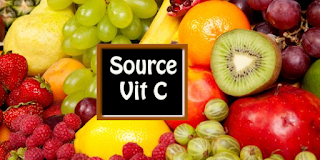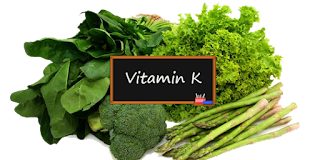Almonds are known to have various health benefits. Almond shaped like a tear with rough brown outer skin. These foods contain good fats and other essential elements that made the ideal daily consumption.
Almonds can be processed into a variety of different types of food with one of them is almond milk. Unlike the almond milk, before consumption, dairy cows must go through a heating process called pasteurization.
When pasteurized, most of the nutrient content of cow's milk potentially damaged by heating. On the other hand, almond milk can be consumed directly without having to go through the heating process so it will not lose its nutrient content.
Milk is known as a healthful beverage that has many nutrients that are important for the health of the body. But unfortunately there are some people who do not like cow's milk or cow's milk protein allergy in. Or you're one of them?
Do not worry. Because currently available a variety of types of vegetable milk contains about the same nutrients as cow's milk. One of them is almond milk.
Compared to soy milk or cow's milk, vitamins and minerals almond milk is much higher. Healthy living movement increasingly crowded with a variety of invitation to adopt a different diet. The principle of food combining, paleo diet, diet to eating only food that is cooked to a minimum on the fire or even known by the increasingly popular raw food.
One of the types of beverages that also rise with increasing movement is eating almond milk or almond extract milky appearance. Milk of almonds has long been known as a substitute for cow's milk since ancient times.
Sari almonds are healthier than cow's milk. Site fitday.com writing, almond extract contains significantly lower cholesterol than cow's milk. In fact, almond extract does not contain saturated fat, so it will not damage the cardiovascular system.
Health benefits is long. Almond extract contains vitamin E which is good for the prevention of cancer. Flavonoid compounds also reduce free radicals in the body, protection from degenerative diseases, such as osteoporosis and diabetes. The content of omega 3 juice almonds can also help reduce levels of bad cholesterol or LDL.
When compared with soy bean extract or rice milk, almond juice contains vitamins and minerals are highest. Such as zinc, iron, calcium, potassium, selenium up. Vitamins and minerals are generally added in cow's milk, soy, or rice milk. In almond extract, vitamins and minerals that are naturally available.
Make your own almond extract highly recommended. In addition to easy, homemade would be guaranteed health. This cider-making process involves almonds soaked for one to two nights. The longer almonds soaked, more like a creamy milk taste. But, almond extract is not durable in the refrigerator. Be sure to make in moderation.
Soak one cup of raw almonds in two bowls of water. After a night or more, discard the water and rinse almonds under running water. In a blender, put almonds and less than two bowls of boiled water. Blender with most high speed for two minutes.
After that, strain the almond solution and water from the blender. Use a soft cloth strainer and press or squeeze with hands. This recipe will yield approximately two cup almond extract. To add flavor, please use honey or other sweeteners. Almond extract or almond milk is ready to be drunk.
Following The Benefits Of Almond Milk:
Being able to lose weight
You want to lose weight the healthy way? Why do not you try eating almond milk? A cup of almond milk contains 60 calories. While other milk contains 146 calories.
Healthy heart
Almond milk contains no cholesterol in it. Therefore, milk is good for your heart health. In addition, almond milk is also low in sodium and high in omega 3 fatty acids that can prevent high blood pressure and heart disease.
Improve brain function
Drinking almond milk regularly is believed to improve the function of your memory. So the almond milk drink before bed to improve brain function and after waking up to boost your energy.
Strengthen bones
Almond milk is able to meet about 30% of your daily calcium needs. It is able to reduce the risk of arthritis, osteoporosis, and can improve your immune system.
Improve the structure of muscle
In addition to protein and calcium, almond milk also contains many B vitamins such as riboflavin is good to stimulate the growth of muscle cells and repair muscle structure.
Nutritional Content of Almond Milk
The content of good fats, vitamin E, and acid folat high enough to make almonds a favorite lover of healthy living. As well as soy milk, almond milk usually consumed as a substitute for cow's milk for lactose-free and casein (cow's milk protein) that is the source of allergens for some people.
Calcium pleated
Almond milk has twice the calcium of raw milk, and 20 fewer calories. Almond milk is also low in carbohydrates and saturated fats. Eating almond milk is an easy way to reduce sugar and calorie intake. Almond milk contains 30 percent calcium and 25 percent of vitamin D which is good for building strong bones and healthy. Vitamin D is in it also can help build and strengthen muscles.
More nutritional value
Almond milk contains about one gram of protein and one gram of dietary fiber per serving. It is a source of calcium which helps strengthen bones. Because almonds contain manganese, vitamin E, selenium, magnesium, potassium, iron, fiber, phosphorus and zinc.
Prevent cancer and anti aging
Almond milk is a good source of vitamins and minerals. High levels of antioxidant flavonoids and vitamin E in almond milk helps prevent cancer and slow the signs of aging.
Maintaining kidney health
Unlike other milk, almond milk contains no minerals so it is safe for the kidneys. Another milk usually contain phosphorous and potassium which can damage the health of the kidneys. If your kidney problems, drink almond milk is one of the best alternative.
Helping diet
Almond milk contains very little calories and sugar, making it suitable for weight loss as well as good for keeping blood sugar levels in the body. This drink is perfect for those who are on a diet or have diabetes because almonds controlling blood sugar and increase insulin levels after every meal undesirable, so it serves as a protective wall against diabetes.
Eye and skin health
Almond milk contains a lot of vitamin A, E, and D. Vitamin A is good for maintaining eye health. Drinking almond milk can help your eyes to function optimally and improve the ability to adjust the light entering the eye. In addition to vitamin E, almond milk also contains many antioxidants that are good for the skin. Diligent drinking almond milk could make your skin glow and healthy.
Fetal development
Folic acid in almonds play an important role in the healthy growth of cells and tissues. Eating almonds can act as a powerful defense system against birth defects. Therefore, the almond is indispensable for the growth of a healthy fetus.
Lactose intolerant
Almond milk is great for those who are lactose intolerant. (Magforwomen)
The Advantages Of Homemade Almond Milk
Homemade almond milk is often called raw or fresh almond milk because the manufacturing process did not involve high temperatures. The result is a more almond milk as fresh and healthy enzymes and nutrients not damaged by heating.
The principle is similar to making the manufacture of soy milk (soy milk but usually make use of the cooking process) to make almond milk essence can be made in any household. Soak almonds overnight, puree in a blender, then strain. Yes, it's just as easy to make it. Dates or honey as a natural sweetener commonly used almond milk.
Another advantage compared to soy milk almond milk is a more savory taste and low calories. Very fitting for those who are calorie diet. Unfortunately almond milk can not be a source of protein because of the low protein content. Can not replace the protein content of cow's milk or soy milk. Milk is also not suitable for people who are allergic to nuts.
Almond Milk for Pregnant Women
Efficacy of almond milk for pregnant women are well known by the public. Originating from the middle east, almonds has long been a symbol of fertility, grace, and also luck. Has become common knowledge that almonds store various properties for health, also for pregnant women. The content of unsaturated fatty acids, eg, olive oil rivaled. Almonds also have vitamin E, vitamin B, and Zink high. However, oksalatnya content is also quite high. Oxalate is a substance that can cause a number of health problems such as kidney stones and various types of pain. That's why almonds need to be limited in patients with kidney stones.
However, negative factors almond far less positive benefits. Almonds are a delicious food that is also used as a natural remedy for lowering LDL cholesterol, triglycerides, and against the growth of cancer cells. As long as we live an active, consumption of almonds 50 per day as a healthy snack is highly recommended, especially if taken as a whole, still in shell, roasted no salt, and no added syrup or sugar.
Many people are looking for products processed almonds rather than peanuts intact. There almond flour, almond oil, almond butter, almond milk until the currently popular.
However, almonds are still intact version is much better. The reason is, most of the almond milk is not made of organic almonds and usually without skin. In fact, it is very nutritious skin. Dairy products also usually undergo a process of blanching (heating to bleach) that can damage a lot of nutrients and antioxidants on the outside of the almonds.
It is strongly believed, that most pregnant women prefer the taste of whole almonds and baked properly. Nutrient content is relatively still complete the course will be the consumption of a healthy fetus and mother. However, do not think of almonds as a 'superfood' for pregnant women.
Then, if the almond milk products are now being circulated to make skin smooth and healthy fetus, increasing breast milk production, and prevent obesity in the fetus and the mother, it was all possible because basically almonds are a good source of fat is needed in the production of breast milk production and does not cause obesity. But, rather than choosing a product made, pregnant women should put in the form of whole foods.
We were actually able to make your own almond milk from its raw form without high heat with a sweetener from fruit.
To be healthy and safe, it is advisable to eat a source of protein with more fiber than simple carbohydrates. For the consumption of milk, milk drink that has been reliable pregnancy, eating a variety of fruits and vegetables and dark colored, and stay away from the food source of high hormonal so that children do not grow up obese later.
Almond Milk Nutrition
Almond milk is very suitable used as an alternative to cow's milk. Almond milk has a lower fat content and does not contain lactose so suitable to be consumed by people who have a cholesterol problem and lactose intolerance.
Here is the nutritional content per cup of almond milk:
- Calories : 60 calories
- Fiber : 1 gram
- Fat : 2.5 grams
- Potassium : 180 milligrams
- Protein : 2 g
- Calcium : 200 milligrams
- Carbohydrates : 10 grams
- Sugar : 7 grams
You may also read these post :
-
The Benefits Of Soy Milk For The Body
-
The Benefits Of Beef
-
The Nutritional Content Of Chicken Eggs



























